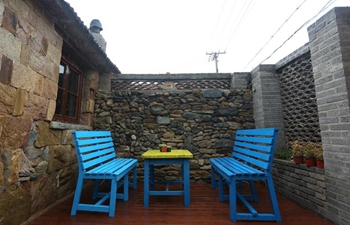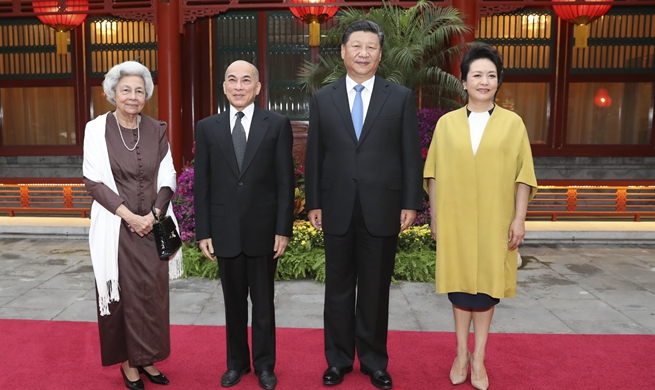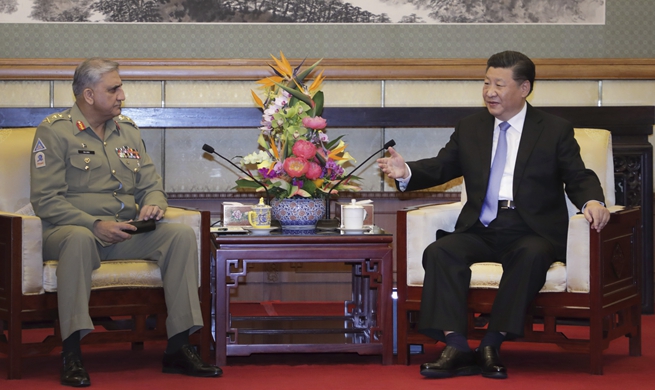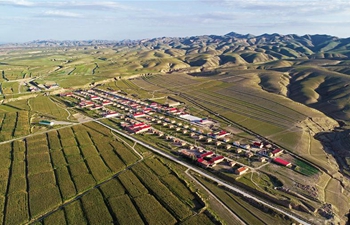URUMQI, Sept. 20 (Xinhua) -- Gulnar Emileli, 26, quit her teaching job in Urumqi, capital of northwest China's Xinjiang Uygur Autonomous Region, and returned to her hometown Kashgar to be a social worker last year.
The Tajik girl studied finance at Xinjiang University of Finance and Economics in Urumqi and after graduation, she became a teacher at a vocational school there. The regional capital is around 1,500 km from her hometown.
She returned home with the intention to better look after her parents, but unexpectedly, she also found a career in social work.
In Kashgar, she joined hundreds of other social workers to help offer vocational training for women, going from village to village. She works as a Tajiki-Mandarin translator for inland teachers and offers psychological support for children suffering from post-quake trauma.
"I have discovered the fun of life and work from social work," Gulnar said. "I think I am doing something valuable to help women and children in my hometown."
In 2017, more than 700,000 people have participated in volunteer services in Xinjiang. Participants in "Go West," a program that calls on university graduates to volunteer in China's westernmost regions, grew ten-fold in Xinjiang from 2013 to 2017, according to official data.
The central government has been offering support to Xinjiang since the founding of the New China in 1949. In 2010, the country strengthened support with a new action plan calling for pairing up sectorial partners to streamline and enhance aid delivery.
China's southern boomtown of Shenzhen is paired with Gulnar's hometown Kashgar. Shenzhen set up a workstation in 2010 in Kashgar to train local talent and help develop social service programs locally.
Aygul Usman has been at the workstation for four years. At a local industrial park, Aygul and her colleagues offer counseling services for minority female workers who left their homes to live in factory dorms for the first time.
"Some of the female workers may have conflicts with their dorm mates, and some even return home without asking for leave," Aygul said. "We offer to counsel them and organize studying and entertainment activities to ease their anxiety."
Aygul also helps organize an annual communication program to send around 150 Xinjiang children to visit Shenzhen each summer along with their local peers.
"Many of the children grew up on the Pamir Plateau, they have never even seen the sea before the trip," Aygul said.
According to Pang Meiling, who heads the social service programs in the workstation, the organization has set up drama clubs, science classes, theater trips and summer camps that have received more than 20,000 local children. They have also raised over 2 million yuan (around 290,000 U.S. dollars) for local children that face various difficulties.

















